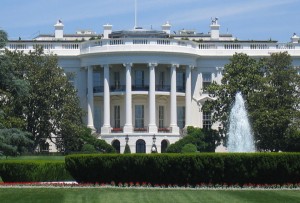 In determining to fight President Obama’s famous—or should I say infamous?—contraception mandate, the American bishops, I suspect, were devoutly hoping two things would not happen. The first undesired outcome was that the issue would become politicized. The second was that it would be seen as an argument over contraception itself.
In determining to fight President Obama’s famous—or should I say infamous?—contraception mandate, the American bishops, I suspect, were devoutly hoping two things would not happen. The first undesired outcome was that the issue would become politicized. The second was that it would be seen as an argument over contraception itself.
Predictably perhaps, both have occurred, at least to some degree. Politicization has taken place, as almost certainly was bound to happen, with the division breaking down along familiar liberal-conservative lines within both the Church and the political world. And contraception as an issue of women’s rights has come to the fore in numerous ideologically skewed claims regarding what this fight is all about.
These unfortunate developments hugely complicate the task of remedying the situation created by the administration’s decision to co-opt religious institutions as part of a federal system for distributing contraceptives, sterilization, and abortion-inducing drugs via Obamacare. A remedy is still possible, but something that was never easy has been made difficult in the extreme.
President Obama’s much ballyhooed “accommodation” of the bishops’ objections—an approach that doesn’t even exist as a detailed and discussable plan up to now—leaves untouched the essence of the system that’s envisaged as well as the ethical problem. Its genius lies in bringing back those liberals—including Catholics—who’d been disposed to concede that the bishops had a point. The president tossed stardust in their eyes and they’ve fallen obediently in line.
But—to repeat—the accommodation would change nothing of importance. Church-run schools, charities, and hospitals would remain locked in place as components of a delivery system to which the Church has profound moral objections. The violation of First Amendment religious liberty rights is palpable and real. And it’s religious liberty, not contraception, that’s been the focus of the bishops’ pleas for relief from the start.
Hence the genius of the second shift, apparently engineered by the White House with the connivance of the media and the abortion-birth control industry—to transfer the focus of the argument from religious liberty (they lose) to contraception (the bishops lose). The faithful toeing of this line by Rep. Nancy Pelosi (D-CA), former Speaker of the House, reached absurd new heights when she accused the hierarchy of “want[ing]the federal government and private insurance to enforce” a contraception ban.
In fact, the bishops deserve congratulations for their handling of this crisis up to now. With few exceptions, their published comments, while reflecting understandable aggravation at duplicitous maneuvers by the president and his team in promising one thing and delivering something else, have been temperate and reasoned. That stands in healthy contrast to the longtime partisans who’ve taken up this fight as one more opportunity for indulging themselves in Obama-bashing during an election year.
Enormously helpful, too, has been the support of prominent non-Catholics for the Church’s position. They have no stake in backing Catholic teaching on birth control, but they realize that if government can get away with trampling Catholics’ constitutionally protected conscience rights today, it will do the same thing to non-Catholics tomorrow if that happens to suit its purposes.
Would that Catholics who’ve lost their stomach for standing with the Church could get the point! The issue isn’t contraception or women’s rights or Barack Obama’s re-election or defeat—it’s religious liberty, the right of religious bodies, consistent with the common good, to live as conscience tells them they ought.



